Results
-
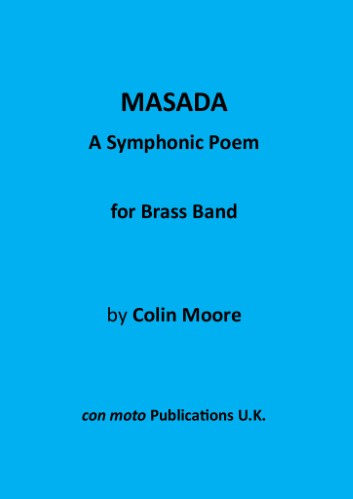 £11.50
£11.50MASADA (score) - Moore, Colin (1925-2019)
The music was proofed before publication by The Pemberton Old Wigan D W Band after the manuscript was discovered by a band member and friend, Jon Don Duncan.
In Stock: Estimated dispatch 1-3 working days
-
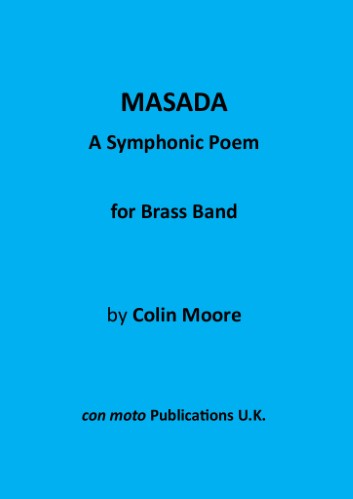 £42.50
£42.50MASADA (score & parts) - Moore, Colin (1925-2019)
The music was proofed before publication by The Pemberton Old Wigan D W Band after the manuscript was discovered by a band member and friend, Jon Don Duncan.
In Stock: Estimated dispatch 1-3 working days
-
 £25.00
£25.00Cloudburst - Brass Band - CB018 - Ethan Skirving
COMPOSER: Ethan SkirvingA great first piece from this talented 17 year old composer.A good concert opener.
In Stock: Estimated dispatch 3-5 working days
-
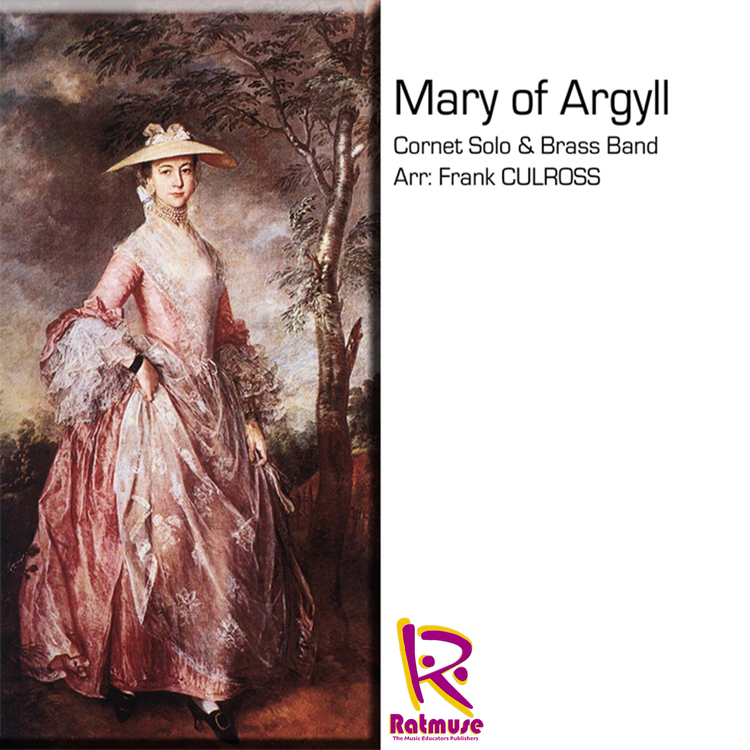 £30.00
£30.00Mary of Argyll - Bb Cornet & Brass Band - Frank Culross
COMPOSER: Frank CulrossFrom the pen of Frank Culross comes this beautiful setting for solo cornet and brass band of the tranditional Scottish tune Mary of Argyle. Originally arranged for the 11 year old (now professional Cornet player) Ian Culross, it has been expanded and developed into a lyrical masterpiece for Brass Band.CLICK HERE TO HEAR THIS PIECE - Mary Of Argyll (Solo Cornet & Brass Band) arr: Frank Culross
In Stock: Estimated dispatch 3-5 working days
-
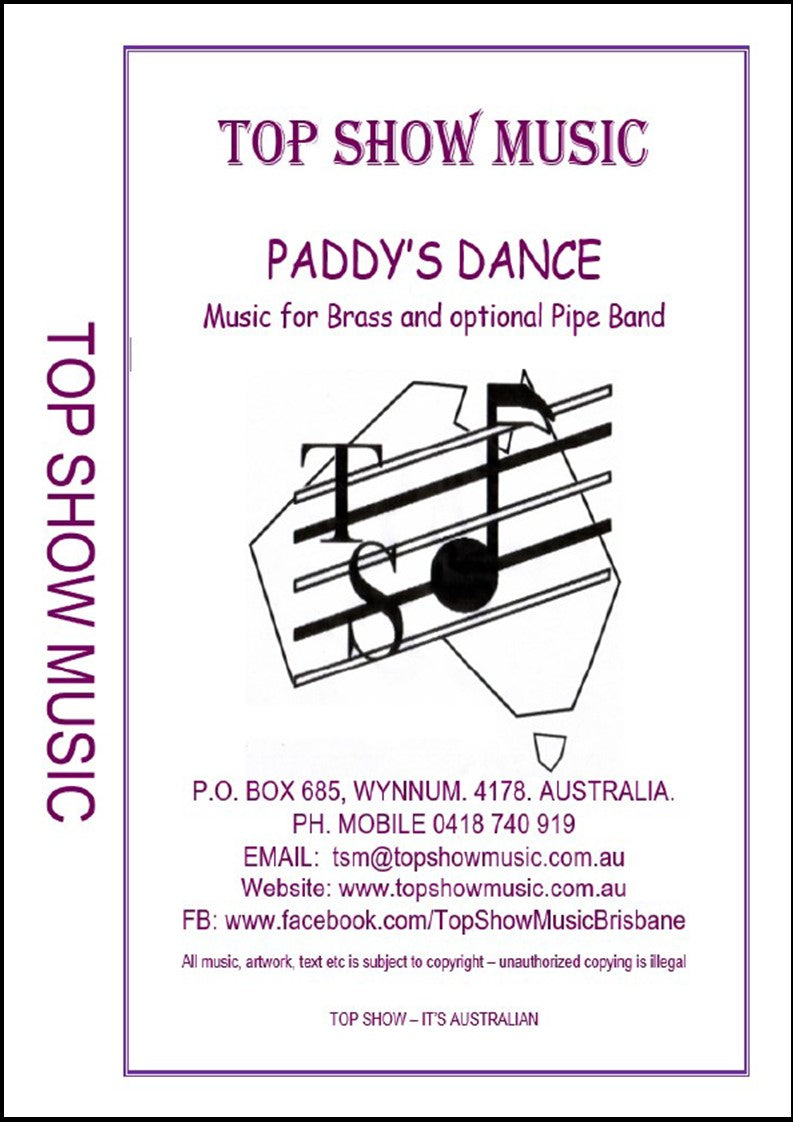 £30.00
£30.00Paddy's Dance - Brass Band - Strauss
COMPOSER: StraussARRANGER: David BealBased on the old Celtic Jig. Paddy's Dance open with percussion and a Xylophone feature.The original Jig has four themes but this version has two more themes added.An optional piper our full pipe band may be added if you desire (Pipe Band parts are included).
In Stock: Estimated dispatch 3-5 working days
-
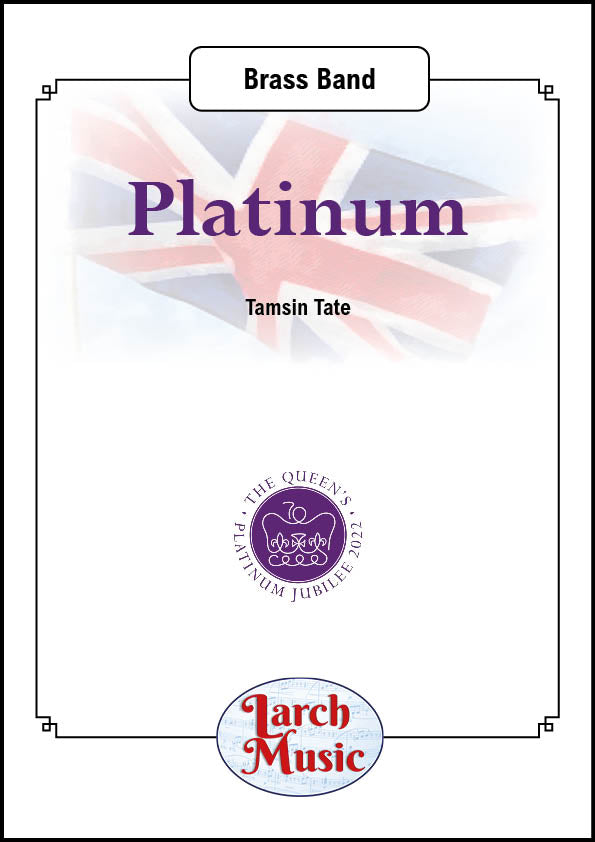 £30.00
£30.00Platinum - Brass Band - LM828
COMPOSER: Tamsin TateWritten to commemorateThe Platinum Jubilee ofHer Majesty Queen Elizabeth IIIn 2022, Her Majesty The Queen will become the first British Monarch to celebrate a Platinum Jubilee, seventy years of service, having acceded to the throne on 6th February 1952 when Her Majesty was 25 years oldSuitable for Most Bands
In Stock: Estimated dispatch 3-5 working days
-
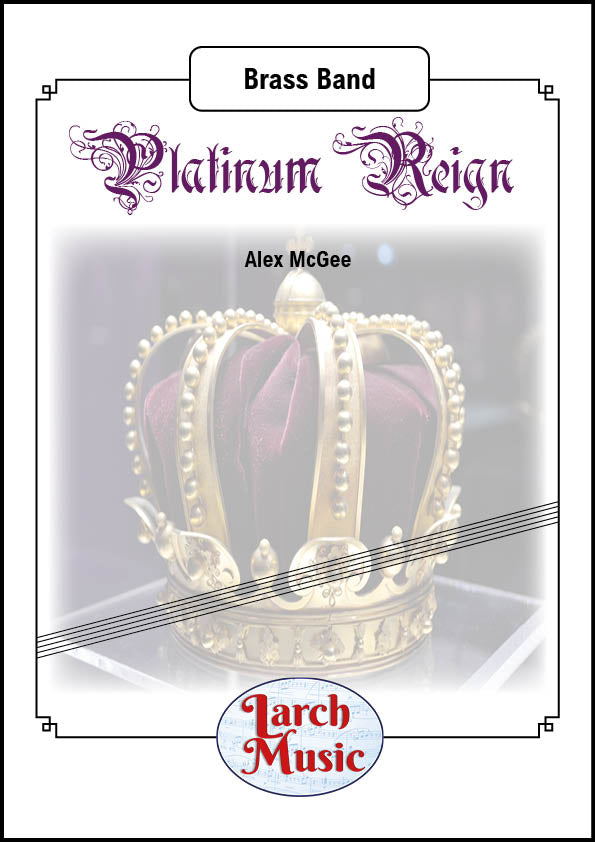 £30.00
£30.00Platinum Reign - Brass Band - LM965
COMPOSER: Alex McGeeWritten to commemorateThe Platinum Jubilee ofHer Majesty Queen Elizabeth IIIn 2022, Her Majesty The Queen will become the first British Monarch to celebrate a Platinum Jubilee, seventy years of service, having acceded to the throne on 6th February 1952 when Her Majesty was 25 years oldSuitable for Most Bands
In Stock: Estimated dispatch 3-5 working days
-
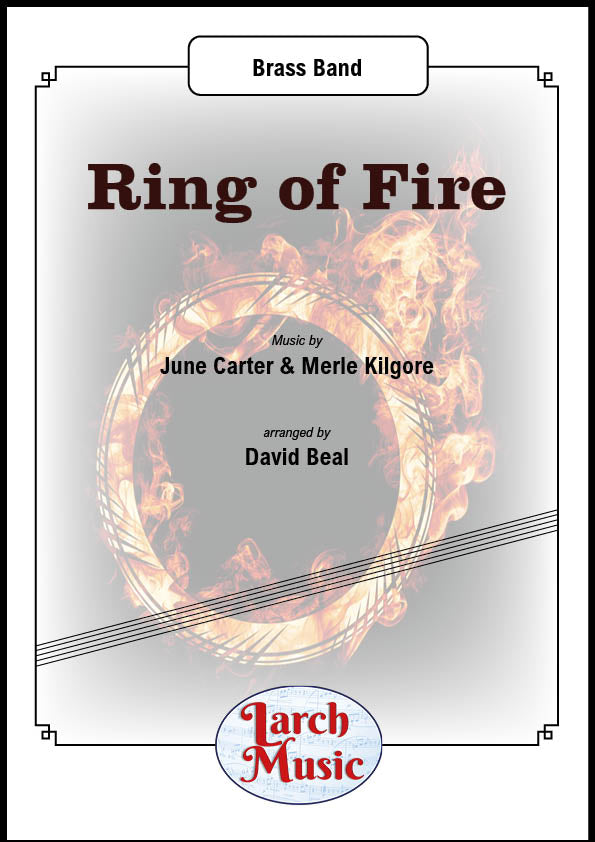 £25.00
£25.00Ring of Fire (Johnny Cash) - Brass Band Sheet Music Full Score & Parts - LM782
COMPOSER:June Carter CashandMerle KilgoreARRANGER: David BealUK SALES ONLY"Ring of Fire"is a song written byJune Carter CashandMerle Kilgoreand popularized byJohnny Cashin 1963.The single appears on Cash's 1963 album,Ring of Fire: The Best of Johnny Cash.The song was originally recorded by June's sister,Anita Carter,on her Mercury Records albumFolk Songs Old and New(1963)as "(Love's) Ring of Fire".Mercury released Anita's version as a single and it was a featured "pick hit" inBillboardmagazine.After hearing Anita's version, Cash claimed he had adream where he heard the song accompanied by "Mexican horns".Cash said, "I'll give you about five or six more months,and if you don't hit with it, I'm gonna record it the way I feel it."Cash noted that adding trumpets was a change to his basic sound"Ring of Fire" was ranked #4 onCMT's 100Greatest Songs of Country Musicin 2003 and #87onRolling Stone's list ofThe 500 Greatest Songs of All Time.In June2014,Rolling Stoneranked the song #27 on its list of the100greatest country songs of all time.The song was recorded on March 25, 1963, and became one of thebiggest hits of Cash's career, staying at number oneon the country chart for seven weeks.It was certified Gold on January21, 2010,by theRIAAand has also sold over1.2million digital downloads.UK SALES ONLYLM782 - ISMN : 9790570007820
In Stock: Estimated dispatch 3-5 working days
-
 £65.00
£65.00Second Suite in F - Brass Band Sheet Music Full Score & Parts - LM602
COMPOSER: Gustav HolstTRANSCRIBED : Daniel S. AugustineA brand transcription from Holst's manuscript score for brass band.A very authentic version from the original for Military Band.Can be used as a testpiece in your next own choice contestSuitable for Section 3 bands upwardsSecond Suite in FOp. 28, No. 2 (1922)1. MarchThe "March" of the Second Suite begins with a simple five note motif between the low and high instruments of the band. The first folk tune is heard in the form of a traditional British brass band march using the morris-dance tune "Glorishears". After a brief climax, the second strain begins with a euphonium solo playing the second folk tune in the suite "Swansea Town". The theme is repeated by the full band before the trio. For the trio, Holst modulates to the unconventional subdominant minor of Bb minor and changes the time signature to 6/8, thereby changing the meter. Usually one would modulate to subdominant major in traditional march form. While Sousa, reputably the "king of marches", would sometimes change time signatures for the trio (most notably in "El Capitan"), it was not commonplace. The third theme, called "Claudy Banks",[2] is heard in a low woodwind soli, as is standard march orchestration. Then the first two tunes are repeated da capo.2. Song without Words "I'll Love My Love"Holst places the fourth folk song, "I'll Love My Love" in stark contrast to the first movement. The movement begins with a chord and moves into a solo over a flowing accompaniment. The solo is then repeated, forming an arc of intensity. The climax of the piece is a fermata, followed by a cornet pick-up into the final measures of the piece.3. Song of the BlacksmithAgain, Holst contrasts the slow second movement to the rather upbeat third movement which features the folk song "A Blacksmith Courted Me". There are many time signature changes (4/4 to 3/4) making the movement increasingly difficult because the accompaniment has a pick up on the up-beats of each measure. The band joins in on the melody around the body of the piece and are accompanied with the sound of a blacksmith forging metal with an anvil called for in the score. The final major chord has a glorious, heavenly sound, which opens way to the final movement.This chord works so effectively perhaps because it is unexpected.4. Fantasia on the "Dargason"This movement is not based on any folk songs, but rather has two tunes from Playford's Dancing Master of 1651. The finale of the suite opens with a solo based on the folk tune "Dargason", a 16th-century English dance tune included in the first edition of The Dancing Master. The fantasia continues through several variations encompassing the full capabilities of the band. The final folk tune, "Greensleeves", is cleverly woven into the fantasia by the use of hemiolas, with Dargason being in 6/8 and Greensleeves being in 3/4. At the climax of the movement, the two competing themes are placed in competing sections.As the movement dies down, a duet forms a call back to the beginning of the suite with the competition of low and high registers.The name 'dargason' may perhaps come from an Irish legend that tells of a monster resembling a large bear (although much of the description of the creature has been lost over time), the Dargason tormented the Irish countryside. During the Irish uprising of the late 18th century, the dargason is supposed to have attacked a British camp killing many soldiers. This tale aside, 'dargason' is more likely derived from an Old English word for dwarf or fairy, and the tune has been considered English (or Welsh) since at least the 16th century. It is also known as 'Sedony' (or Sedany) or 'Welsh Sedony'.
In Stock: Estimated dispatch 3-5 working days
-
 £58.00
£58.00The Christmas Tree - Edvard Grieg/John A. Brakstad
Edvard Griegs tune to an old Christmas song was published in his opus 61 in 1895.
Estimated dispatch 10-14 working days







